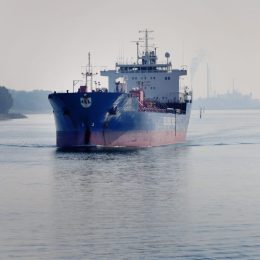Climate-resilient ports and waterways
Climate risks for ports and waterways are significant. We already witness disruptions from extreme weather and fluctuating river water levels affecting port terminals. Sea level rise is also a growing concern. Deltares aids ports, policymakers, and investors in long-term decision-making. By formulating local effects from global climate scenarios, we implement suitable adaptation measures to ensure climate resilience for ports and waterways.
Local interpretation of climate risks for ports and waterways
The consequences of climate change are not the same everywhere in the world. Nor is every port or waterway equally susceptible to those consequences. Working with our clients, we formulate the climate scenarios of the International Panel on Climate Change (IPCC) in terms of local climate risks for ports and waterways, taking margins of uncertainty into account.
We usually start with a desk study (an “expert judgement”) of the relevant local climate risks before conducting in-depth quantitative analyses. With a study of this kind, we have already been able to help the port of Porto do Açu in Brazil to explain their climate risks to their investors.
Quantifying climate risks, chain effects and adaptation measures
If initial analyses indicate that the climate risks for a port or waterway are significant, we use the software and tools we have developed in-house to quantify those risks and identify effective adaptation measures. That involves looking at the direct effects of climate change, such as floods, on port access roads.
And at the indirect chain effects, such as the impact of traffic congestion on business continuity and logistics. For example, we have used the RA2CE toolbox to identify vulnerabilities and chain effects for vital infrastructure (including port infrastructure) in Broward County, USA.
We use this type of information to advise our clients about effective adaptation measures. This allows them to make decisions about renovating, upgrading, modifying or decommissioning infrastructure to make ports and waterways climate-resilient.
Knowledge networks and research for climate-resilient ports and waterways
Our experts are involved in international knowledge networks and working groups, including the United Nations International Panel on Climate Change (IPCC) and the PIANC Permanent Task Group on Climate Change. In that way, we constantly keep our finger on the pulse of the latest developments in this field and work together on solutions.
We deploy our software and experimental laboratory facilities to study climate adaptation measures. An example is research looking at measures to gradually adapt breakwaters to cope with sea level rise and increasing wave overtopping. Our work here includes looking at the combined effects of reefs, raised foreshores, other revetments and crest walls. In that way, we prepare ports and waterways for a climate-resistant future.



